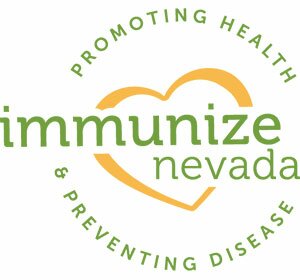Have you ever heard the sound of whooping cough?
If so, you can probably still hear it in your memory: It’s an unforgettable sound.
If not the sound of whooping cough, click here.
For parents, grandparents, humans really, this is probably one of the most devastating sounds you can imagine. To think of a baby struggling for breath is almost unimaginable.
And parents — humans, really — should do anything they can to prevent that sound, right? Especially when you consider: whooping cough can be fatal, especially for babies.
A video of Riley Hughes, a baby that passed away from whooping cough in March of 2015, went viral earlier this year. Another powerful video of a Gold Coast mother who refused the whooping cough vaccine during pregnancy and later caught and passed the disease on to her baby girl circulated earlier this month.
Good news: There is a way to protect babies from this devastating disease. But we need your help in spreading this important message.
Infants are particularly susceptible to whooping cough — or pertussis, as it is more technically called. And parents are often the sources of the disease, unknowingly passing it on to their babies.
This is why the CDC now recommends whooping cough vaccination during pregnancy — during EACH pregnancy. The best time to get the shot, according to experts, is during your 27th through 36th week of pregnancy.
According to the CDC:
“The Centers for Disease Control and Prevention (CDC) now recommends that pregnant women receive the whooping cough vaccine for adolescents and adults (called Tdap vaccine) during the third trimester of each pregnancy. This replaces the original recommendation that pregnant women get the vaccine only if they had not previously received it.
This recommendation is supported by the American College of Obstetricians and Gynecologists and the American College of Nurse-Midwives.”
So this begs the question: Why vaccinate during pregnancy?
-
Vaccinating during a third trimester offers your newborn short-term protection as soon as he is born.
-
Babies do not get their first whooping cough vaccines until they are 2 months old. These first few months of life are when your baby is at greatest risk for catching whooping cough and having severe, potentially life-threating complications from the infection.
-
After a pregnant mom receives the Tdap vaccine, your body will create antibodies (proteins produced by the body to fight off diseases) and pass some of them to your baby before birth.
-
These antibodies can also protect your baby from some of the more serious complications that come along with whooping cough.
The goal of vaccination during pregnancy: You protect your baby, even before he or she is born.
But you’re also working toward creating a “cocoon” of protection around your baby by making sure you are vaccinated and not susceptible to the disease as well. Click here to read a heartbreaking story of a mom who exposed her baby to pertussis.
The same goes for fathers, grandparents or caregivers: Those closest to your baby, especially before the baby has had a full series of five DTaP vaccines, should also have a Tdap shot.
Keep in mind: Whooping cough is highly, highly contagious:
-
If one member of a household has it, research suggests there's an 80 - 100% chance that other susceptible household members will catch it.
-
Adults are susceptible to pertussis, because the vaccine you received as a child wanes over time, after 5-10 years.
-
Even when you get your baby vaccinated, he or she may not be fully protected until they have received at least 5 doses of the DTaP vaccine.
So there you have it. Encourage whooping cough vaccination during the third trimester of pregnancy. Encourage vaccination for anyone caring for small babies. And help us spread the word.
Because no baby should struggle for breath. And no baby should die from a disease that a simple vaccine could prevent.
Originally published 4-20-2015, updated and re-posted 4-18-2016.

